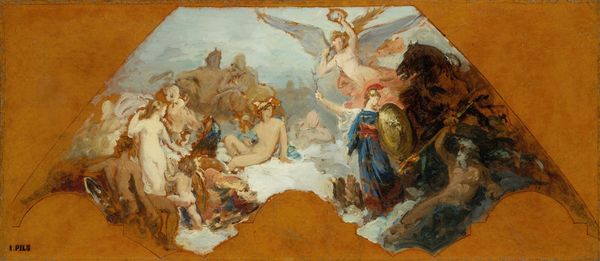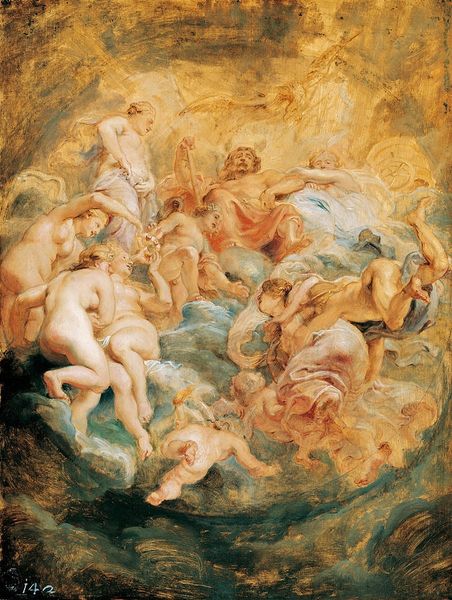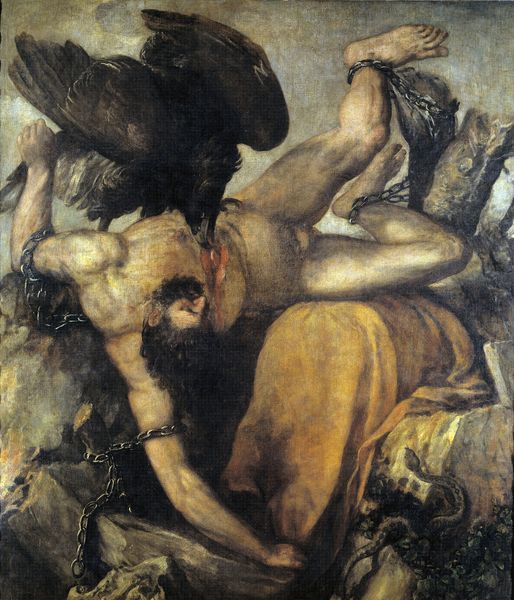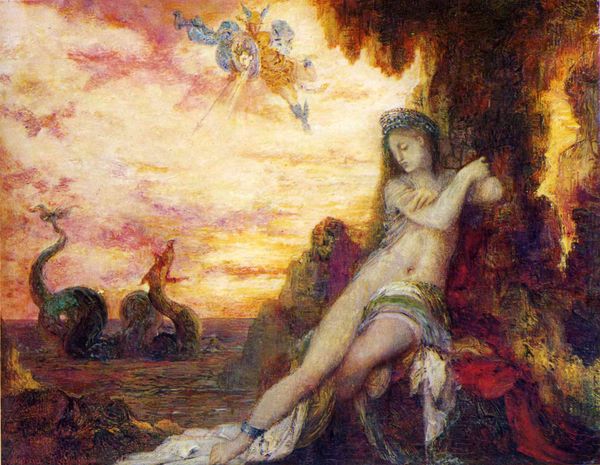
Dimensions: support: 2445 x 1835 mm
Copyright: CC-BY-NC-ND 4.0 DEED, Photo: Tate
Curator: Oh, my. What a swirling, almost feverish dreamscape! Editor: Indeed. We’re looking at "Life’s Illusions" by George Frederic Watts, a large canvas currently residing in the Tate Collections. Watts was born in 1817 and died in 1904. Curator: The scale is overwhelming, almost oppressive. Are those figures meant to be joyful? They seem… trapped somehow. Editor: Watts was deeply concerned with the moral and social issues of his time. He often used allegorical figures to explore these themes. The idea of "illusion" was a comment on the false hopes and fleeting pleasures that distract people from more meaningful pursuits. Curator: I get a sense of reaching for something just out of grasp. The colors themselves—that muted ochre—it’s like happiness already fading. Editor: And that’s the point, isn’t it? Watts challenges the viewer to consider the true value of what they pursue. The painting’s scale demands attention, inviting us to confront these uncomfortable truths. Curator: It’s less a celebration of life and more a cautionary tale. A beautiful, but ultimately melancholic, reflection. Editor: Precisely. A fitting reminder that sometimes, the most profound art asks us to question our own realities.













